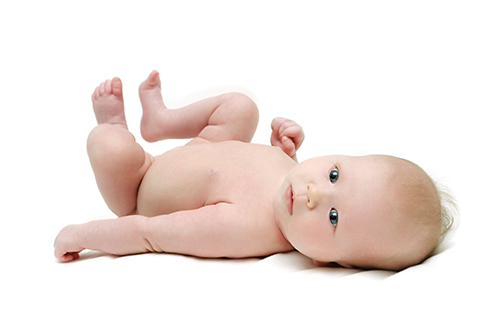Share a room, not a bed

Share a room, not a bed – that’s the advice to parents of newborn babies from the organisation responsible for safeguarding and promoting the welfare of children in Northamptonshire.
Northamptonshire Safeguarding Children Board (NSCB) is re-launching its Safe Sleeping campaign aimed at preventing avoidable deaths of newborn and small babies.
The Safe Sleeping campaign is in line with the Department of Health's recommendation for preventing sudden infant death syndrome (SIDS) that the safest place for a baby to sleep in the first six months is in a cot in the same room as the parent or carer.
Sleeping environment
Keith Makin, Chair of NSCB, said: “This campaign is all about helping parents to understand how they can take steps to reduce the risk of accidental death. We're raising awareness of how a baby's sleeping environment can be a contributing factor in sudden infant death syndrome, as can parents' smoking and the consumption of alcohol, prescribed medication or illegal substances.
"As well putting babies to bed safely, parents should not leave their baby to sleep in a car seat or travel system. It might seem kinder and more convenient to let a sleeping baby stay where they are, but very young infants might fall asleep in these devices in such a way that their airflow is cut off and in such a scenario, very young babies can’t lift their necks to protect themselves."
Reducing risks
The advice to parents includes:
- Place babies gently on their backs up to the age of 6 months
- Ensure that your baby does not overheat due to too many blankets
- Keep the room at a temperature that is comfortable for you at night (about 18C (65F)
- Do not leave your baby asleep in travel systems or car seats
- Don’t let your baby’s head become covered. Covers should be securely tucked in, and reach no higher than the shoulders
- Don’t sleep with your baby, especially on a sofa or armchair, after drinking alcohol, taking medication or drugs as they can make you sleep more heavily and increase the risk of accidental suffocation
- Smoking increases the risk of SIDS - if you're pregnant or just had a baby and you or your partner smoke, speak to your midwife about NHS support to stop smoking
- Breastfeeding your baby reduces the risk of SIDS - your midwife can give you information about your feeding choices and provide support if you chose to breastfeed
- Peter Boylan, Director of Nursing and Quality for NHS Nene CCG and NHS Corby CCG, said: “There are approximately 9,000 births a year in the county and new parents come into contact with professionals from both health and social care, so it is important that collectively, we can ensure that the information and advice is available and shared with new parents at the most appropriate time. By listening to the advice of health visitors and midwives, we can reduce the risks.”
Carolyn Fox, Northampton General Hospital Director of Nursing, Midwifery and Patient Services, said: “Our midwives are huge advocates of physical contact between parents and babies because it’s so important for a newborn’s early development and emotional security. We’re not for one moment suggesting that parents should reduce the amount of waking time they spend in close contact with their baby.
“Looking after a newborn baby, the tiredness can be overwhelming and you can find yourself nodding off when you feed or have a cuddle. So we’re particularly appealing to grandparents and other family members – if you see that mum or dad has fallen asleep with the baby, don’t leave them like that.
“In a cot, on their back, in your room – that’s the safest place for your baby.”
Louisa Russell, Clinical Lead for Children's 0-19 Services, Northamptonshire Healthcare NHS Foundation Trust, said: "Every baby death is a tragedy, especially so when it may have been preventable. The Health Visitors in Northamptonshire visit all new babies and their parents at home around the eleventh day after their birth. At this time they give advice, support and information to ensure babies sleep safely. Health Visitors are available to continue this support throughout the early months and years of a child's life. Health Visitors, like everyone else are committed to preventing any more babies dying so tragically".
Nationally over 300 babies a year die suddenly and unexpectedly in circumstances involving sleeping arrangements or environment.
Information material is distributed by midwives and health visitors together with advice in GP surgeries, hospitals and children’s centres. Home visits, carried out by a midwife, include safe sleeping assessments carried out within the first four weeks of a new baby’s life and the assessment and appropriate advice is recorded in the Parent Held Child Health Record (Red book).
The campaign is supported by all members of the Northamptonshire Safeguarding Children Board including Northamptonshire County Council, NHS Nene Clinical Commissioning Group (CCG) and NHS Corby CCG, Northamptonshire Police and the county’s acute NHS Trusts and community hospital Northamptonshire Healthcare NHS Foundation Trust.
Posted on Monday 5th December 2016